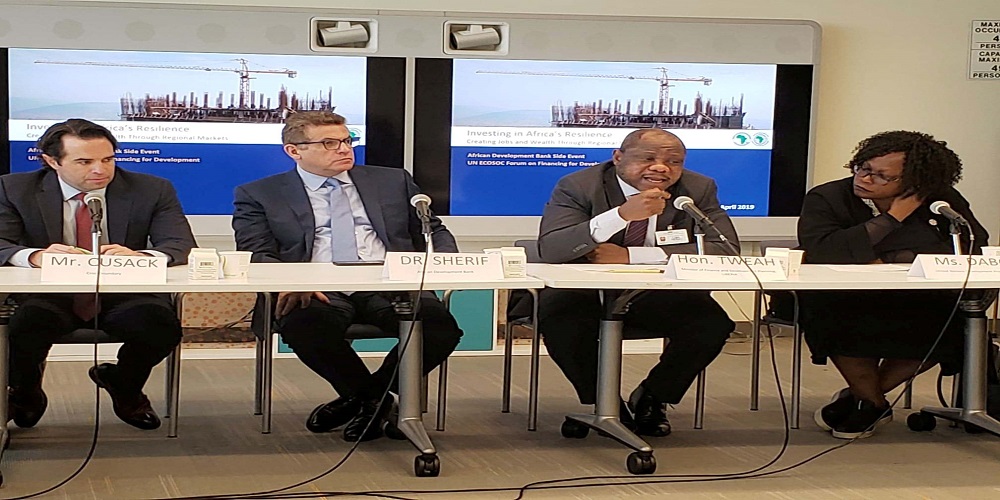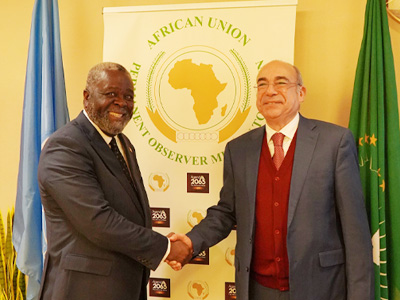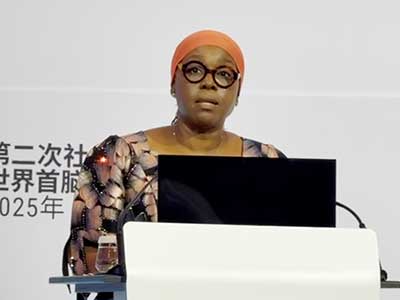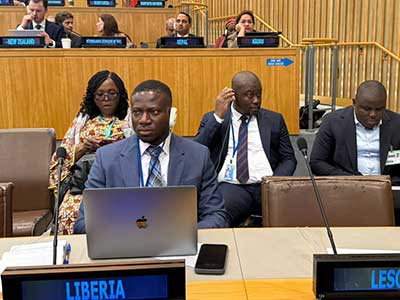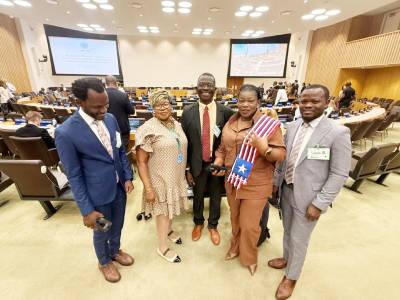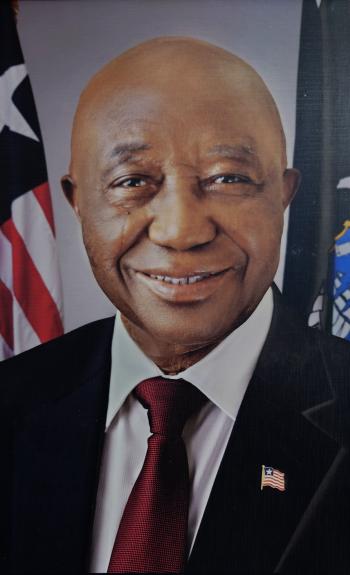The Minister of Finance and Development Planning of the Republic of Liberia, Hon. Samuel D. Tweah, Jr. says there's a need for stakeholders working to end fragility in Africa to coordinate better and approach fragility from a "whole new lens of a wealth building framework through private sector investment.
Minister Tweah told an African Development Bank side event on "Investing in Africa's Resilience --Creating Jobs and Wealth through Regional Markets" that for too long, investments have been made to address fragilities across Africa; yet poverty persists.
He attributed the situation to the lack of adequate coordination among development funders, Non- Governmental Organizations and the private sector; as well as the lack of effective targeting, in terms of which sector is prioritized for funding.
The Finance and Development Planning Minister said it is evident that increased private investment create jobs and lead to economic growth, yet fragility schemes have focused more on the social dimension, than the economic sector.
Minister Tweah explained for the past Seventy-five (75) years, the social sector has received an "inordinate amount of attention" and support, with data showing that a significant share of Official Development Assistance (ODA) coming to Africa goes toward social infrastructure, while a smaller share is invested in the economic sector.
Minister Tweah said that while it is important to invest in education and other social infrastructure, it has not yielded much in the quest to end fragility and stressed that it was time to take a step back and look at the strategies in a whole new context of effective targeting and strategy building, with the aim of ending fragility through a wealth building framework. " Do we all see ending fragility through a wealth building framework or modality; are we all --Development Funders, Non-Governmental Organizations, Private Sector--coordinating to address fragilities through a multiple lens; are we on the same page?" Questioned Minister Tweah.
Illustrating the effects of lack of coordination and support to the private sector, Minister Tweah explained that Liberia for the past Ten (10) years has missed out on 300-400 thousand jobs that could have been provided through 'outgrower's' scheme in the agriculture sector, because authorities and partners did not holistically consider the job creation and the fragility ending context of private sector investments.
Said Minister Tweah: " Several agriculture concessions were given contracts to acquire land and made significant investments, but the investments were crippled because they could not access the land. So technically, in the last Ten (10) years, many of these companies are struggling, because communities interpose objections, there were violence and all kinds of land-related disputes that stalled their investments and so many of these companies are thinking of folding up. You had NGOs on one side telling communities you have a right to your land, Development partners funding the NGOs on another side, and the private sector left alone to struggle, and everybody is moving in silos. My point is, somebody should have been paying bigger attention to the holistic scale, looking at the job creation and the fragility ending context for the fact that poor people could have jobs as the result of private sector investments".
On economic integration and regional markets, Minister Tweah stressed that the private sector remains the only viable option to connect Africa, develop value chain with African countries and open up trade within the Africa Continent.
The Finance Minister hailed the African Development Bank's support to the regional integration of the Mano River Union Member States through its “Liberia/Cote D’Ivoire Mano River Union (MRU) Road Development and Transportation Facilitation Program, and called on all the Private Sector Departments of both the AfDB and the World Bank to be more strategic in investing in the economic sector to promote the creation of jobs and wealth in Africa.
For his part, the Vice President for Regional Development, Integration and Business Delivery at the African Development Bank, Dr. Khaled Sherif said in order to solve the problem of fragility in Africa, efforts must be made to increase disposable income; stressing without disposable income, there will be no consumption, no private sector response, and no job creation.
Dr. Sherif highlighted the need to prioritize the development of the value chain across Africa, instead of exporting natural resources as raw materials, the case for several centuries. "If we continue to import more than we export; we are in essence off-shoring jobs for other countries to make products for us." He explained.
The African Development Bank's Vice President said a comparative look at the resources in countries across Africa, the development of value chains, and trading through continental free trade zones will help solve the problem of fragilities and promote regional integration.
The African Development Bank's side event on "Investing in Africa's Resilience --Creating Jobs and Wealth through Regional Markets" was held on the sidelines of the 2019 United Nations Economic and Social Council (ECOSOC) Financing for Development (FfD) follow-up form which convened at the United Nations Headquarters from April 15-18, 2019.
The FfD Forum is an intergovernmental process with universal participation mandated to review the Addis Ababa Action Agenda (Addis Agenda) and other financing for development outcomes and the means of implementation of the Sustainable Development Goals (SDGs).

